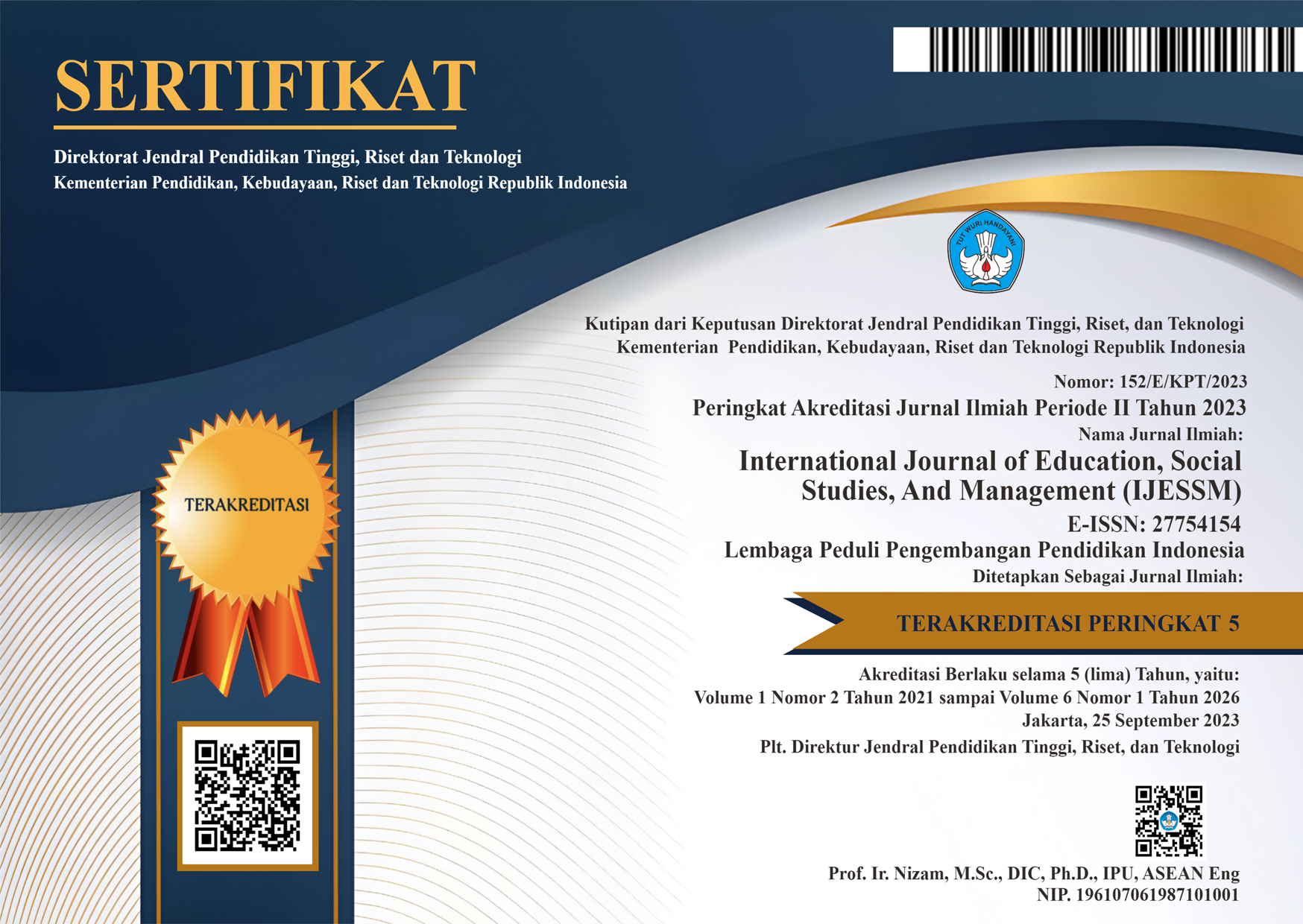The Concept of Ta'lim in the Qur'an and its Implementation Among Students of UIN Syahada Padangsidimpuan
DOI:
https://doi.org/10.52121/ijessm.v4i3.596Keywords:
Concept of Ta'lim, Al-Qur’an, StudentAbstract
The concept of ta'lim in the Qur'an emphasizes the importance of knowledge, understanding, and teaching for humanity, as reflected in various verses. This study investigates the concept of ta'lim in the Qur'an and its implementation among students at UIN Syahada Padangsidimpuan, focusing on both theoretical and practical aspects and their role in shaping student character. Using a qualitative descriptive approach, data were gathered through observations and interviews with relevant informants. The findings indicate that ta'lim, as understood by these students, involves the process of learning and teaching both religious and general knowledge in accordance with Islamic teachings. Implementation occurs through educational content that integrates theoretical knowledge with Islamic values. Supporting factors include an Islamic campus environment, the role of lecturers in integrating Islamic values into teaching, students' intentions to seek knowledge as worship, and policies emphasizing Islamic principles. However, challenges such as limited student awareness, negative environmental influences, and academic workload hinder implementation. Strategies to enhance ta'lim include strengthening the Islamic-based curriculum, improving teaching quality, fostering an Islamic campus environment, empowering student organizations, and using personal and motivational approaches. These efforts aim to foster students who embody both knowledge and Islamic values.
Downloads
Published
How to Cite
Issue
Section
License
Copyright (c) 2024 International Journal Of Education, Social Studies, And Management (IJESSM)

This work is licensed under a Creative Commons Attribution 4.0 International License.

















